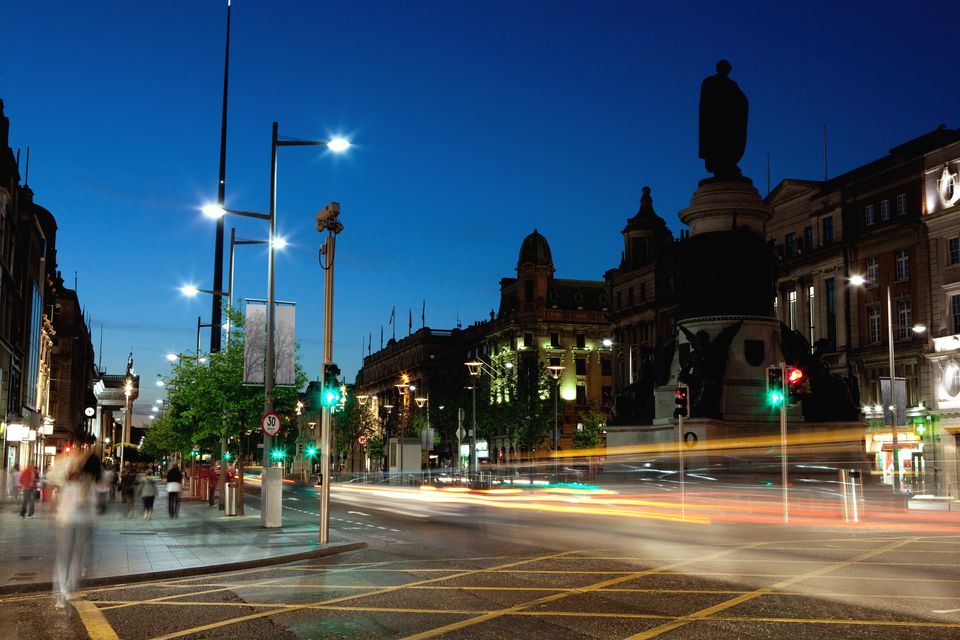Top Stories
New Study Reveals Top Light Pollution Offenders—Immediate Action Needed

BREAKING: A new study has uncovered alarming sources of light pollution, revealing that city planners may be gravely underestimating the extent of night-time light exposure affecting both people and wildlife. Conducted by researchers at the University of Galway, this urgent research highlights that private windows are the largest contributors to light pollution, significantly overshadowing street lighting.
The study, published in Nature Cities, indicates that while street lamps are often the focus of light pollution mitigation efforts, they rank only as the second most common source. Instead, household windows emit more light, suggesting that simple measures like encouraging residents to close curtains after dark could yield substantial benefits.
Other notorious offenders include traffic lights, illuminated advertisements, and decorative garden lights, all of which remain lit long after midnight, creating disruptive “light spill” and “skyglow.” This phenomenon not only disturbs urban dwellers but also adversely affects local wildlife, disrupting natural patterns for animals, birds, and even plants.
The research team, led by Georgia MacMillan, coordinated citizen scientists across Germany, Ireland, Italy, Croatia, Turkey, England, and the United States. Using the innovative Nachtlichter (NightLights) app, participants meticulously recorded various light sources in their neighborhoods. The findings underscore the urgent need for comprehensive light pollution policies, particularly in Ireland, where no national legislation currently exists.
MacMillan emphasized the need for larger-scale studies in Ireland to address this growing concern. “Using the NightLights application for pilot surveys has provided crucial insights into the diverse sources of light pollution,” she stated. “We aim to collaborate with other Irish universities and community groups to expand this research.”
The European Union mandates that member states must include light pollution mitigation in their nature restoration plans. However, without national legislation in Ireland, immediate action is crucial to protect both urban residents and wildlife from the disruptive effects of artificial lighting.
To combat this issue, experts recommend implementing motion-activated lighting, light-dimming practices, and shielding lights to minimize upward light escape while still illuminating essential areas for safety.
As light pollution continues to escalate, this groundbreaking study serves as a call to action for individuals, planners, and policymakers alike. The data collected not only highlights the widespread nature of the problem but also provides a framework for effective solutions.
Residents are encouraged to take immediate steps to mitigate their own contributions to light pollution, such as turning off unnecessary lights and utilizing window coverings. The implications of this research are profound, impacting not only urban living conditions but also the ecological balance in our environments.
Stay tuned for further updates as this developing story unfolds, and consider sharing this critical information with your community to raise awareness about light pollution and its far-reaching effects.
-

 Top Stories3 months ago
Top Stories3 months agoTributes Surge for 9-Year-Old Leon Briody After Cancer Battle
-

 Entertainment4 months ago
Entertainment4 months agoAimee Osbourne Joins Family for Emotional Tribute to Ozzy
-

 Politics4 months ago
Politics4 months agoDanny Healy-Rae Considers Complaint After Altercation with Garda
-

 Top Stories4 months ago
Top Stories4 months agoIreland Enjoys Summer Heat as Hurricane Erin Approaches Atlantic
-

 World5 months ago
World5 months agoHawaii Commemorates 80 Years Since Hiroshima Bombing with Ceremony
-

 Top Stories3 months ago
Top Stories3 months agoNewcastle West Woman Patricia Foley Found Safe After Urgent Search
-

 Top Stories5 months ago
Top Stories5 months agoFianna Fáil TDs Urgently Consider Maire Geoghegan-Quinn for Presidency
-

 World5 months ago
World5 months agoCouple Convicted of Murdering Two-Year-Old Grandson in Wales
-

 World5 months ago
World5 months agoGaza Aid Distribution Tragedy: 20 Killed Amid Ongoing Violence
-

 World5 months ago
World5 months agoAristocrat Constance Marten and Partner Convicted of Infant Murder
-

 Top Stories4 months ago
Top Stories4 months agoClimbing Errigal: A Must-Do Summer Adventure in Donegal
-

 Top Stories4 months ago
Top Stories4 months agoHike Donegal’s Errigal Mountain NOW for Unforgettable Summer Views









